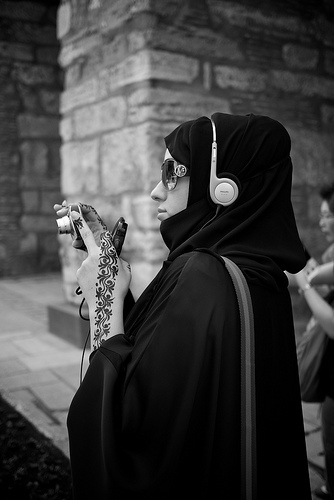We run our website the way we wished the whole internet worked: we provide high quality original content with no ads. We are funded solely by your direct support. Please consider supporting this project.

Insights from a Technology Fast
Hannah Brencher took a two week technology fast and shared what she learned last week. Of course, if you’re reading this, you obviously make use of technology and we’re not saying that there’s anything wrong with that. (We use it an awful lot too.) But there’s a proper place for technology and it’s good to periodically set it aside and notice the urges and voices that pop up when you cut off your reliance on it. Notice where you’re getting LIFE, and devote yourself to coming back to your source over and over again. Notice when anything, including technology, bleeds into the places that God alone should occupy in your heart and mind.
From her article:
My body- unrest. My thoughts- ungodly. My spirit- unfed. Me- in a steady, steady habit of checking my email before bed. 3am. 6am. My day sculpted already by the responses I must give to people, the photo albums I’ve devoured, the outfits I’ve seen pinned and the people I must call. Found & digested, all before God could even lift up His mighty hands and say, “Child, when shall I gear you for the work ahead? When will you realize the world will never feed you?”
It’s idolatry and I’ve never known it. To make myself a demigod. A person worth following. And if my streams, my Instagrammed actions, my blog holds no trace of the God who rains in my soul then who am I? Who am I & what kind of example have I been for you?
Image by Thomas Leuthard. Used in accordance with Creative Commons. Sourced via Flickr.
Category: Essays
Tags: Essay, Technology
Topics: Ethical, Cultural and Political Issues
Related Reading

Did Jesus Have Two Minds?
As I laid out in the previous post, I believe Jesus is fully God and fully human. The question is: How is this possible? How do we talk about the way that Jesus was fully God and fully man? The Creed of Chalcedon (451) tries to answer the question this way: We, then, following the…

The Bible, Government and Christian Anarchy
This “essay” contains my informal reflections on biblical texts that I believe support what some call “Christian Anarchy.” Consider it a very rough draft of a future project. I’ll argue that Kingdom people are called to pledge their allegiance to God alone, not to any nation, government, political party or ideology. Because Kingdom people are…

Getting Behind the “Letter” of Violent Portraits of God
“I will do to you what I have never done before… in your midst parents will eat their children, and children will eat their parents…” Ezek. 5:9-10 In my previous post I offered a brief review of Matthew Bates’ fascinating work, The Hermeneutics of the Apostolic Proclamation by Matthew Bates (Baylor University Press, 2012). Among other…

The Phinehas vs. Jesus Conundrum
I’ll be frank. This is not a blog that will be easy for some people to read. But it’s a blog I believe every follower of Jesus should read – even if you have to force yourself to press on. It’s about something we all wish was not true. It’s about the way the Bible…

Imaging God Rightly: God’s Self-Portrait, Part 3
In the previous two blogs I noted that the vision of God in our minds is the single most important vision in our lives, for it completely determines whether we’ll have a relationship with God and what kind of relationship this will be. A. W. Tozer once wrote, “What comes into our minds when we…

Does God Have a Dark Side?
In the previous post, I argued that we ought to allow the incarnate and crucified Christ to redefine God for us rather than assume we know God ahead of time and then attempt to superimpose this understanding of God onto Christ. When we do this, I’ve argued, we arrive at the understanding that the essence…
